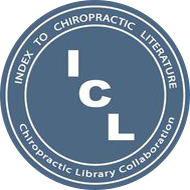| Objective: Evidence suggests that the deep cervical flexors (DCFs) are important for the control of the cervical spine. The craniocervical flexion (CCF) test is a clinical test developed for patients with neck pain disorders based on the action of the DCFs. Because these muscles are deeply situated, it is difficult to reach the DCFs with surface electromyography. Magnetic resonance imaging (MRI) can be used to measure these muscles in cross section. The objective of this study was (1) to determine the reliability of MRI for measuring cross-sectional area (CSA) of the longus colli (Lco) and longus capitis (Lca) and (2) to evaluate the changes in CSA during contraction. Methods: Thirty healthy subjects aged 29 ¡À 9.3 years were imaged using MRI. The CSA of the Lco and Lca was evaluated at 4 different levels (C0-C1, C2-C3, C4-C5, and C6-C7) at rest and during CCF. Results: The intraclass correlation coefficients for the CSA of the Lco and Lca showed good to excellent reliability (0.73-0.92), except at the C4-C5 level. There was a significant increase in CSA of both Lco (F = 6.79, P = .015) and Lca (F = 19.20, P ¡Ü .001) due to CCF, and this was at different levels. The highest increases in CSA occurred at the C0-C1 level for the Lca (11.1%) and at the C2-C3 level for the Lco (17.4%). Conclusions: This study demonstrated that the action of CCF resulted in a contraction of the Lco and Lca at different levels. The results indicate that MRI is a promising technique to evaluate changes in CSA during contraction. This abstract is reproduced with the permission of the publisher; full text by subscription. Click on the above link and choose a publisher from PubMed's LinkOut feature.
|
